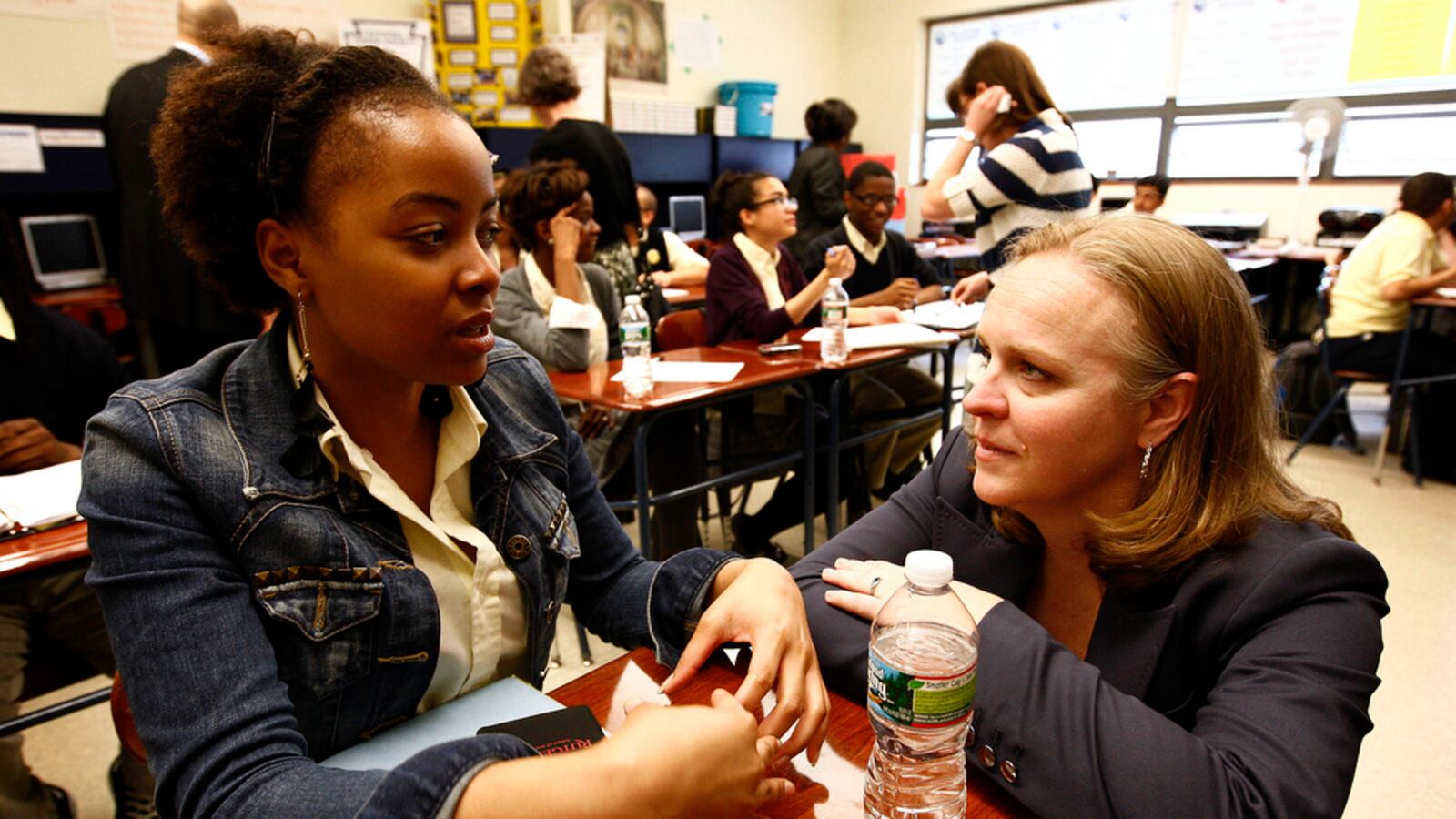After a rocky tenure as superintendent of the Newark Public Schools, Cami Anderson is now working with charter networks and school districts to reform school discipline, she told Chalkbeat.
Called the Discipline Revolution Project, Anderson’s new initiative aims to help schools reduce suspensions and move away from exclusionary discipline practices.
“There’s an increasing awareness in the reform community, charter and district, that our punitive approach to discipline is very costly to some kids, but there’s not enough talk about what we’re moving towards,” she said in an interview at the New Schools Venture Fund summit. “There’s too much talk about what we’re moving away from.”
Anderson is the former Newark schools superintendent who was appointed in 2011 just as the district received a highly publicized $100 million gift from Facebook founder Mark Zuckerberg. Her work in Newark, especially a plan to close a number of the district’s schools, made her a lightning rod for controversy until she resigned under pressure in 2015.
Her new focus on school discipline comes as charter schools have faced pressure to reduce their suspension rates, particularly so-called “no excuses” charters, which often produce high test scores and use a strict disciplinary approach.
Anderson sees an opportunity to get schools to change their practices and wants to ensure discussion translates into action.
“It seems like a conversation is happening … and it’s an important opportunity,” she said. “I want to make sure it’s filled with content. My big fear is that it will stay as a philosophical [one].”
Anderson convened a group of leaders last week from charter networks and school districts, including from Denver Public Schools, Tennessee’s state-run Achievement School District and charter networks such as Uncommon Schools and Summit Public Schools.
Specifically, Anderson is hoping to offer tools for leaders interested in improving discipline practices, help schools use discipline data more effectively, and facilitate discussions among school and district leaders.
Charter schools, like traditional public schools, are dramatically more likely to suspend black students and students with disabilities. Advocates argue that exclusionary discipline hurts students and feeds a “school-to-prison” pipeline. This has caused a number of school districts and some charter school leaders to vow to reduce suspensions and emphasize alternatives like restorative justice.
Others within the charter movement have pushed back, including Success Academy’s Eva Moskowitz.
“Lax discipline won’t strike a blow for civil rights,” Moskowitz wrote in the Wall Street Journal. “Instead it will perpetuate the real civil-rights violation — the woeful failure to educate the vast majority of the city’s minority children and prepare them for life’s challenges.”
Anderson says she’s not saying suspensions should be eliminated altogether, but that schools should put a greater emphasis on preventing student misbehavior in the first place. She also argues that suspensions are simply an ineffective way to address misbehavior.
“Students have to be accountable for their behavior. They just need to be accountable in a way that that they’re going to learn from it,” Anderson said. “Putting them out is almost never the way for that to happen.”
Indeed, there is little evidence that exclusionary discipline has its intended impact, though there is also limited rigorous research on the efficacy of alternatives.
After leaving Newark, Anderson started her own education consulting firm and has worked with charter schools on improving their services for students with disabilities. Anderson said she doesn’t know yet whether her school-discipline initiative will grow into a standalone organization. Last week’s convening, essentially the project’s launch, was funded by the New Schools Venture Fund and the Walton Foundation. (Walton is also a supporter of Chalkbeat.)
“Part of it is going to be responding to what people say they got out of it and what they want moving forward,” she said.


